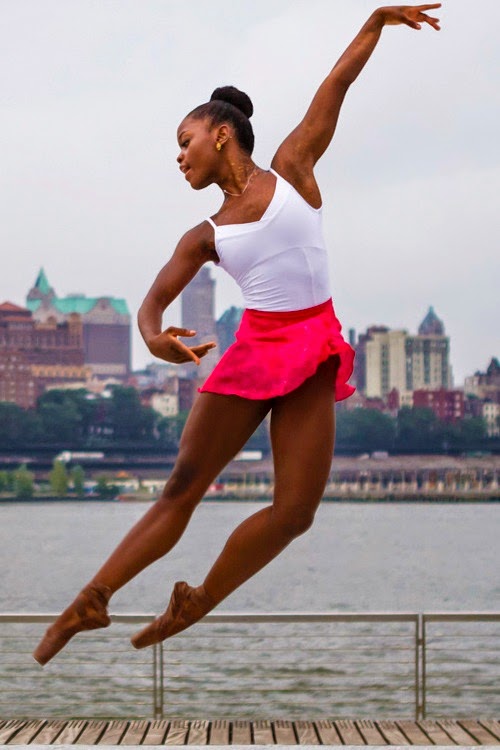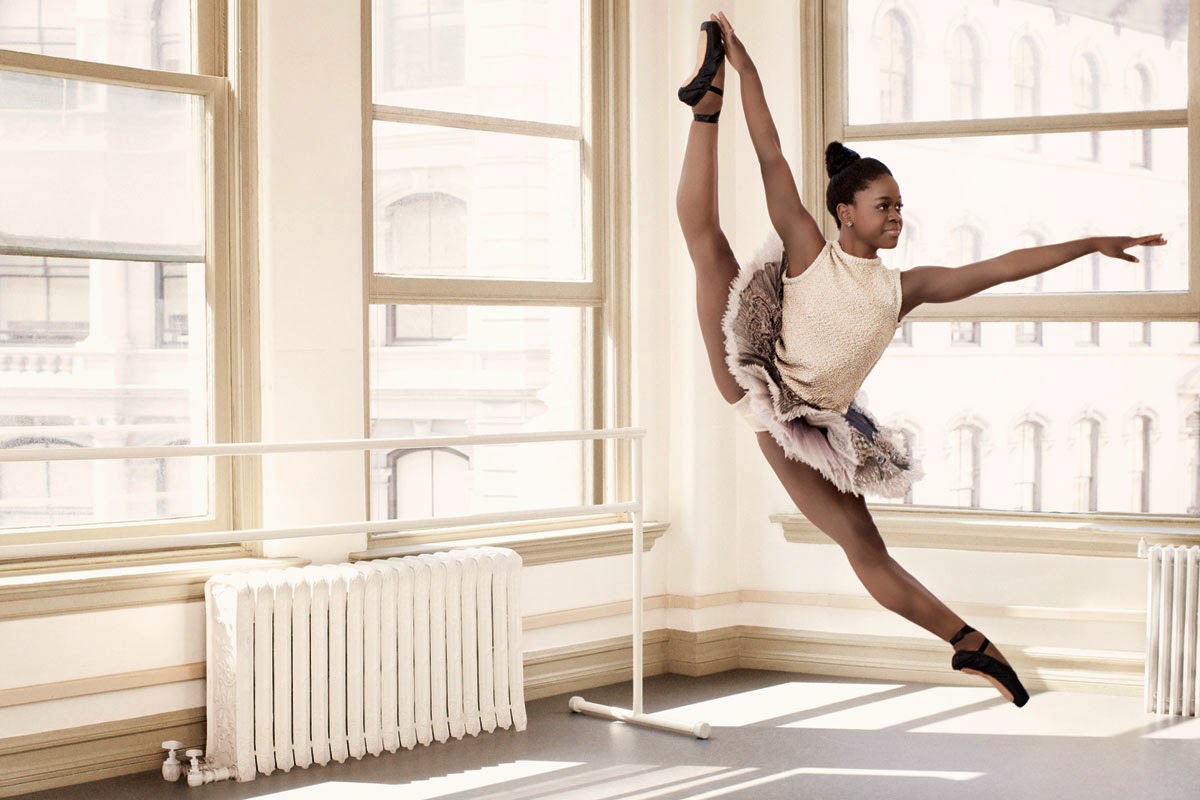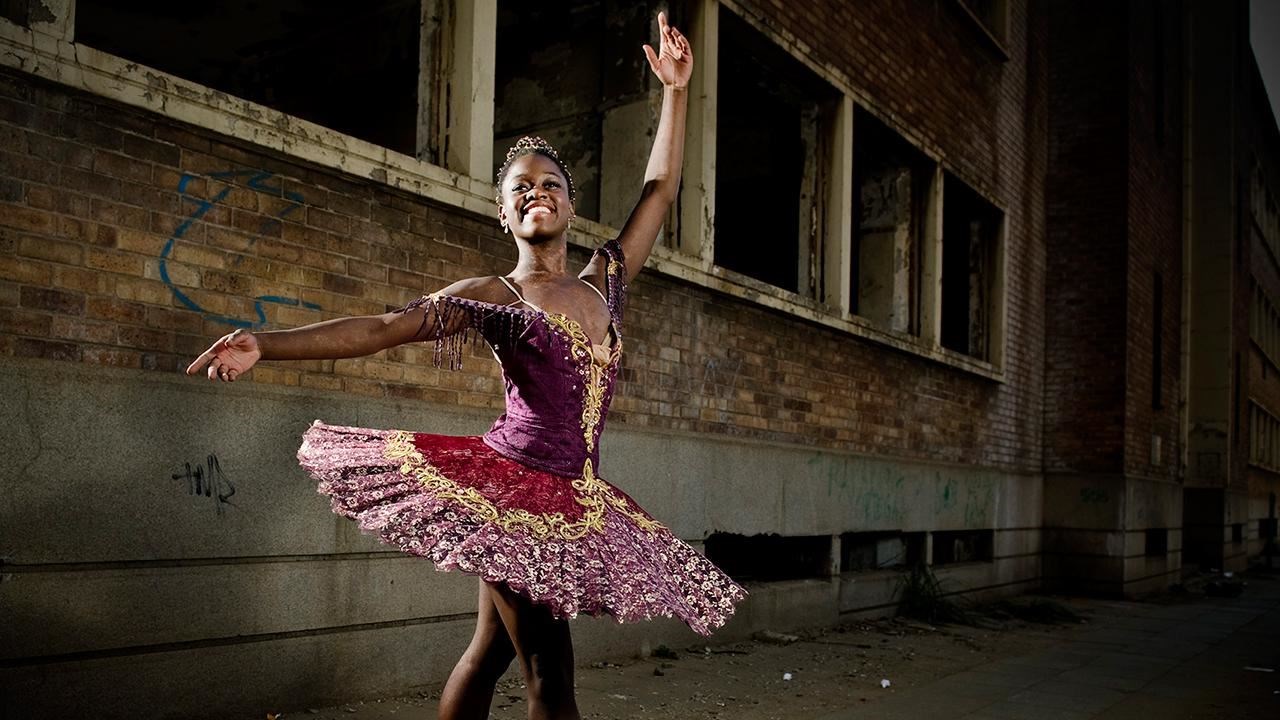Michaela DePrince

Michaela DePrince (nee Mabinty) watched her parents die in war torn Sierra Leone and suffered unimaginable emotional and physical abuse at an orphanage before being adopted by an American family. Due to vitiligo, she was deemed a devil child by her African handlers and told her chances of being adopted were impossible. Once in America, she realized her dream of becoming a professional ballerina, although black dancers are rare in the world of Classical ballet. Michaela was featured in a documentary entitled “First Position” and on ABC’s “Dancing with the Stars.” She currently dances with the Dutch National Ballet and is the author of two books, Taking Flight and Ballerina Dreams.
Spilt: How is Michaela similar or different to Mabinty?
Michaela: I think that there’s still a lot of Mabinty in me. However, as Mabinty I thought I was being brave, while as Michaela, I recognize that my stoicism was and still is a way of protecting myself from hurt. As Mabinty I refused to cry, but as Michaela I now cry easily and often, which I think is a good thing. When I appeared on College Tour in Amsterdam I cried because my sister Mia was sick. When my mom and sister Mia visited me in Amsterdam this past fall, I cried and cried the day they left. So as Mabinty I had difficulty expressing my emotions, but as Michaela, I don’t.

S: While the other children cried in the orphanage, you remained stoic. What do you think made you so reserved? And in hindsight, would it have been easier or harder for you to have released your emotions?
M: It would have been harder for me to release my emotions in the orphanage because I was being bullied by adults at the time, and their bullying would have been worse if I allowed them to see how much they were hurting me. So I had to hold in my emotions.
S: Besides dance and your dreams of becoming a ballerina, what gave you hope? And how were you able to cope with being in such an abusive environment before moving to America?
M: My best friend Mabinty Suma, who was adopted with me and became my sister Mia, helped me cope with being in an African orphanage and being harassed and bullied. I think that if you have a best friend with whom to share your sorrows and joys, life is better no matter the circumstances. She was that person for me,
S: How important is hope? Many of our children are physically, mentally, and emotionally abused. What advice do you have for them while they’re in the thick of things and during their recovery?
M: When children are abused my advice to them is always to seek someone who has the power to help them, whether it is a parent, guidance counselor, trusted relative, or a parent of a good friend. It’s impossible for a younger person to stand up to an older bully or abuser without being damaged in some way. To recover from abuse, I recommend that a younger person seek a way to express herself. I suggest an art. Drawing, painting, molding clay, dancing, singing, creative writing…artistic activities like these help a person express their sentiments in a safe way.
S: I was struck by the fact that you were able to contain your emotions in the orphanage but you cried when you didn’t receive certain ballet roles. Why do you think that is?
M: I didn’t dare cry in the orphanage but once I was adopted and living a normal life, I felt free to cry.

S: How is the joy of dancing different for you than other kinds of happiness?
M: Actually, I don’t think that the joy of dancing is different for me than other kinds of happiness. It is part of the same package. Dancing enables me to express my happiness. My older brother and youngest sister express their happiness through art. Mia expresses hers through music.
S: Ballet roles require complex emotions and depth. How do you prepare emotionally and are there moments when you feel uncomfortable with the feelings that arise? If so, how do you deal with them?
M: I think that original contemporary ballet or more modern pieces that are not part of a ballet story, are emotionally difficult to perform because I must give my own interpretation to them. I find classical ballet roles, with known plots much easier to perform because they are acted out. I know that the Black Swan in “Swan Lake” is supposed to be provocative, and Aurora in “Sleeping Beauty” is supposed to be innocent, so I act out those defined emotions.
S: What were some of your coping mechanisms in the past and have they changed?
M: Some of my coping mechanisms were good and some were bad. In the orphanage I pretended to be someone I was not in order to protect myself. I didn’t allow the abusive adults to know that I was tenderhearted. I took advantage of my vitiligo, and convinced them that I was a witch to keep them away from me. With children I used my ability to make up games to build friendships. Sometimes, as a young teen I used negative behaviors to gain acceptance from the older teens in school…behaviors such as buying dinner or gifts for other kids, or even smoking to be part of a group. Fortunately, I’ve outgrown these typical teenage negative behaviors. I have a much stronger sense of myself now. I don’t need to pretend to be somebody who I am not.
S: Reading about your brother Teddy’s death was so heartbreaking. You said that you pushed away the people you love most. What did you learn from so much loss? And what led you to letting your loved ones back in?
M: Ironically, the very same thing that caused me to push away the people I loved the most, was what caused me to let them back in. After I lost Teddy, I worried the most about losing my mom, dad, and sister Mia. My mom and dad are old. My mom is in her late sixties, and my dad is in his seventies. So I worry about their dying while I’m still young. After Teddy died I felt that if I held them at arms length I would not feel pain if I lost them. Then eventually, I realized that because they are old, they wouldn’t live for a long time, and I needed to appreciate them while they are here. Because Mia was sick for so long, I had the same worries about her. I was afraid to be so close to her, but I have gotten over that, and we are the very best of friends again.
S: How was the racism you encountered in Africa different from that which you experienced in the US? Which hurt more and why?
M: I didn’t really experience racism in Africa. I experienced discrimination because I was different. Also the fighting in Sierra Leone wasn’t tribal based, like in Rwanda. There wasn’t racism involved. I experienced racism in the US, and that hurt a lot because I perceived the US to be a magical place where I would always be safe.

S: You wrote at length about your skin condition, vitiligo, and how people reacted to your appearance. When and how did you start to accept yourself?
M: My accepting myself had a lot to do with my parents. They believed that I was beautiful, and treated me like a princess. Eventually, I began to believe that too.
S: You’re an extremely talented dancer, but I think a lot of people would be surprised by how beautifully you express yourself through writing. How important is it to express yourself through words and artistic forms other than dance?
M: I think it’s a wonderful thing to be able to express one’s self through writing because it gives you a power you wouldn’t have otherwise. However, I believe if you can express yourself in at least one way, such as singing or dancing, you can accept who you are and what you can do. My mom always taught us that you should strive to develop the talents that you do have, and not tear yourself apart over what you lack.
S: Any last words for our kids?
M: I feel that I’d like to pass on something that my mother taught me. She always said that nobody is worthless. Every human being has a talent. Look hard at yourself and try to find your talent. When you do, work hard to develop it.
You can find out more about Michaela at: www.michaeladeprince.com. Her books, Taking Flight and Ballerina Dreams are available on Amazon.
